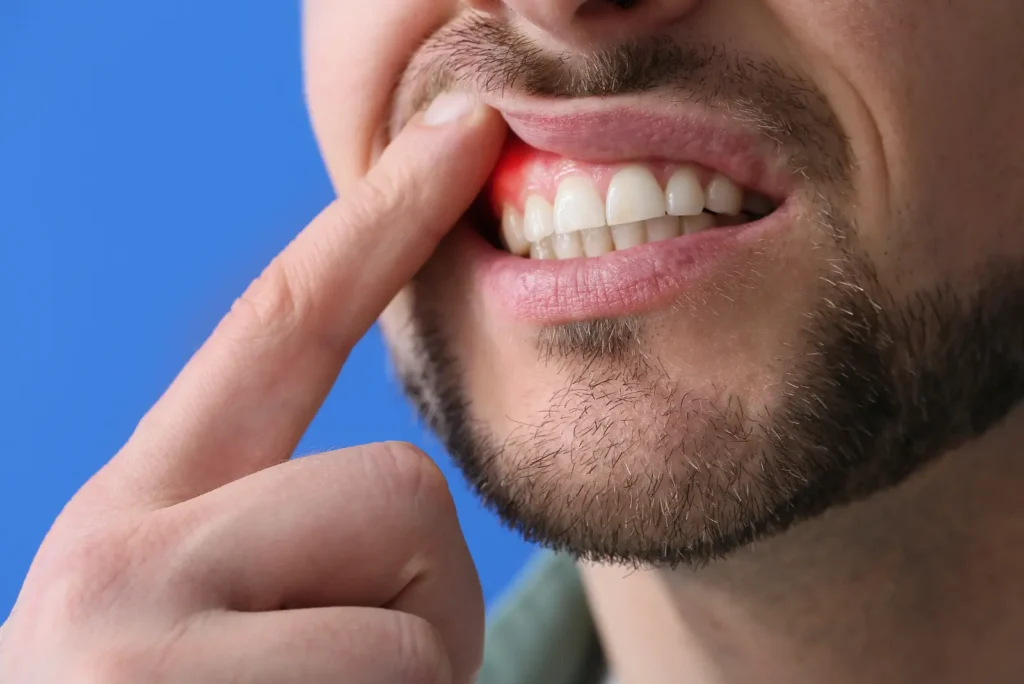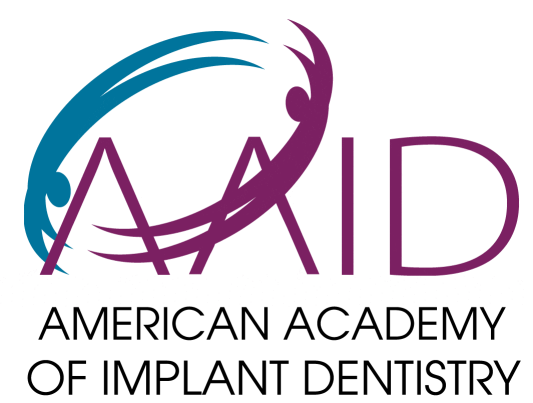How to prevent bleeding gums involves maintaining excellent oral hygiene through proper brushing, flossing, and regular professional cleanings, as bleeding gums are typically caused by plaque buildup that leads to gum inflammation and gingivitis. At Lansdowne Family Dental, Dr. Wael Elosta and our experienced dental team frequently help patients address this common yet concerning issue that can indicate various underlying dental and health problems requiring professional attention.
The most effective prevention strategies for bleeding gums focus on removing plaque and bacteria that cause gum inflammation:
- Proper brushing technique – Use a soft-bristled toothbrush with gentle, circular motions twice daily
- Daily flossing – Remove plaque and food particles between teeth where brushing can’t reach
- Regular professional cleanings – Professional removal of hardened tartar every six months
- Antimicrobial mouthwash – Reduce bacteria and inflammation in hard-to-reach areas
- Healthy lifestyle choices – Avoid smoking and maintain a balanced diet rich in vitamins
While bleeding gums are common, they should never be ignored as they can signal early gum disease, vitamin deficiencies, or other health conditions that require professional evaluation. Understanding the causes, treatment options, and prevention methods is crucial for maintaining healthy gums and preserving your beautiful smile throughout your life.

This comprehensive guide will share professional insights and practical strategies to help you prevent bleeding gums, recognize warning signs, and maintain optimal gum health for lasting oral wellness.
Understanding Bleeding Gums
Bleeding gums are often the first sign of gum disease, but they can indicate other health issues as well. When patients come to me with this concern, I always stress the importance of not ignoring it. Healthy gums don’t bleed easily, so if you notice blood when brushing or flossing, it’s time to pay attention.
Common Causes of Bleeding Gums
In my years of practice at Lansdowne Family Dental, I’ve observed several factors that contribute to bleeding gums:
- Poor Oral Hygiene: This is the most common cause I see. When plaque builds up along the gum line, it leads to inflammation and bleeding.
- Gingivitis and Periodontitis: These are stages of gum disease. Gingivitis is the early stage and is reversible, while periodontitis is more advanced and can lead to tooth loss if left untreated.
- Smoking: Tobacco use not only stains teeth but also weakens your immune system, making it harder for your body to fight off gum infections.
- Hormonal Changes: Pregnancy, menopause, and puberty can all cause increased gum sensitivity and bleeding.
- Vitamin Deficiencies: Lack of Vitamin C and K can affect gum health. I often recommend a balanced diet to my patients to ensure they’re getting all necessary nutrients.
- Medications: Some blood-thinning medications can increase the likelihood of bleeding gums.
- Systemic Health Conditions: Diabetes, leukemia, and blood clotting disorders can all manifest with bleeding gums.
- Aggressive Brushing: Using a hard-bristled toothbrush or brushing too vigorously can irritate and damage gum tissue.
- Stress: High stress levels can weaken your immune system, making it harder for your body to fight off gum infections.
Treating Bleeding Gums: Our Approach at Lansdowne Family Dental
When a patient comes to me with bleeding gums, our treatment approach is tailored to the underlying cause. Here’s how we typically proceed:
- Comprehensive Dental Examination: We start with a thorough dental exam to assess your overall oral health and identify any signs of gum disease.
- Professional Cleaning: Often, a deep cleaning (scaling and root planing) is necessary to remove built-up plaque and tartar below the gum line.
- Improved Oral Hygiene: I work with patients to enhance their at-home oral care routines, demonstrating proper brushing and flossing techniques.
- Antibiotic Treatments: In some cases, we may prescribe antibiotics to combat bacterial infections in the gums.
- Advanced Procedures: For severe cases of gum disease, we might recommend more advanced treatments such as:
- Osseous surgery to reduce pocket depth around teeth
- Laser periodontal therapy for precise and less invasive treatment
- Gum grafts to replace lost gum tissue
- Addressing Underlying Health Issues: If we suspect that bleeding gums are a symptom of a broader health problem, we’ll refer you to the appropriate medical professional for further evaluation.
Expert Recommendations To Prevent Bleeding Gums:
Prevention is always better than cure. Here are my top tips for maintaining healthy gums and preventing bleeding:
- Practice Excellent Oral Hygiene: Brush your teeth at least twice a day for two minutes each time. Use a soft-bristled toothbrush and fluoride toothpaste. Don’t forget to floss daily!
- Use an Electric Toothbrush: Many of my patients find that switching to an electric toothbrush improves their oral hygiene significantly.
- Rinse with Therapeutic Mouthwash: An antibacterial mouthwash can help reduce plaque and gingivitis. I often recommend alcohol-free options to avoid dry mouth.
- Boost Your Vitamin Intake: Ensure you’re getting enough Vitamins C and K through your diet or supplements. Vitamin C supports gum health, while Vitamin K aids in blood clotting.
- Quit Smoking: If you smoke, quitting is one of the best things you can do for your oral and overall health. We offer resources and support for patients looking to quit.
- Manage Stress: Practice stress-reduction techniques like meditation or yoga. High stress levels can affect your immune system and gum health.
- Stay Hydrated: Drinking plenty of water helps wash away food particles and bacteria from your mouth.
- Eat a Balanced Diet: Limit sugary and starchy foods, which contribute to plaque buildup. Instead, opt for fruits, vegetables, and lean proteins.
- Consider Green Tea: Some studies suggest that the antioxidants in green tea can promote gum health. It’s a healthy alternative to sugary drinks.
- Regular Dental Check-ups: Visit us at Lansdowne Family Dental every six months for professional cleanings and check-ups. We can catch and treat issues early before they become more serious.
When to Schedule an Appointment with Us?
If you notice persistent bleeding when brushing or flossing, don’t wait to seek help. Here are some signs that indicate you should schedule an appointment with us immediately:
- Gums that bleed easily or frequently
- Red, swollen, or tender gums
- Gums that have pulled away from your teeth
- Persistent bad breath or bad taste in your mouth
- Loose or separating teeth
- Changes in the way your teeth fit together when you bite
At Lansdowne Family Dental, we’re committed to helping you achieve and maintain optimal oral health. We use state-of-the-art technology and techniques to provide the best possible care for your gums and teeth.
Remember, healthy gums are the foundation of a healthy smile and can contribute to your overall well-being. Don’t hesitate to reach out if you have any concerns about bleeding gums or other dental issues. Your smile is our priority, and we’re here to support you every step of the way in your oral health journey.
By taking proactive steps to care for your gums and scheduling regular check-ups with us, you can enjoy a lifetime of healthy smiles. Let’s work together to keep your gums healthy and your smile bright!






